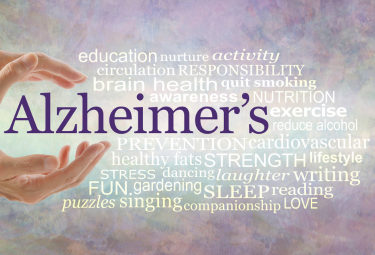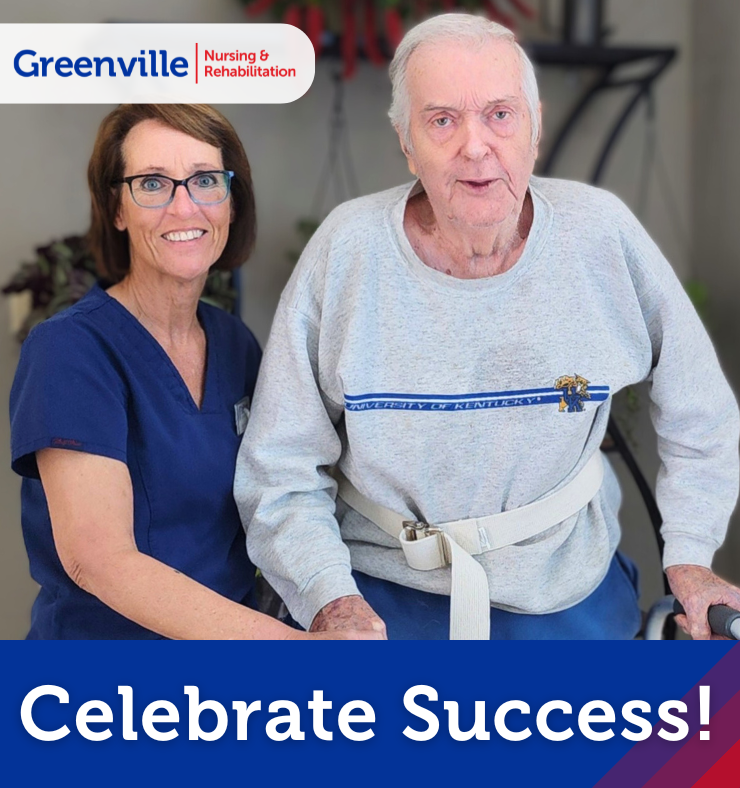Cognitive and Brain Health
June 9, 2025Cognitive health is the ability to think, learn, and remember clearly. It is needed to carry out many everyday activities effectively. Cognitive health is just one aspect of overall brain health.
Many factors contribute to cognitive health. Genetic, environmental, and lifestyle factors may contribute to a decline in thinking skills and the ability to perform everyday tasks, such as driving, paying bills, taking medicine, and cooking. Although genetic factors can’t be controlled, many environmental and lifestyle factors can be changed or managed.
Scientific research suggests that there are steps you can take to reduce your risk of cognitive decline and help maintain your cognitive health. These small changes can add up: Making them part of your routine can support your brain function now and in the future.
What is brain health?
Brain health refers to how well a person’s brain functions across several areas. Aspects of brain health include:
- Cognitive health — how well you think, learn, and remember
- Motor function — how well you make and control movements, including balance
- Emotional function — how well you interpret and respond to emotions (both pleasant and unpleasant)
- Tactile function — how well you feel and respond to sensations of touch, including pressure, pain, and temperature
- Sensory function — how well you see, hear, taste, and detect odors
Brain health can be affected by age-related changes in the brain, injuries such as stroke or traumatic brain injury; mood disorders such as depression, substance use disorder, or addiction; and diseases such as Alzheimer’s and related dementias.
Take care of your physical health
Taking care of your physical health may also help your cognitive health. You can:
- Get recommended health screenings.
- Manage chronic health problems, such as high blood pressure (more below), diabetes, depression, and high cholesterol.
- Talk with your health care provider about the medicines you take and possible side effects on memory, sleep, and brain function.
- Treat age-related sensory conditions such as hearing or vision loss.
- Reduce risk for falls and other accidents that could lead to brain injuries.
- Limit use of alcohol; note that some medicines can be dangerous when mixed with alcohol.
- Quit smoking if you currently smoke. Avoid other nicotine products such as chewing tobacco.
- Be mindful of your diet. Choose foods that are nutritionally dense, low in animal fats, and high in vitamins and fiber.
- Get enough sleep, generally seven to nine hours each night.
Manage high blood pressure
Preventing or controlling high blood pressure not only helps your heart but can also help your brain. Decades of observational studies have shown that having high blood pressure in midlife — from the 40s to the early 60s — increases the risk of cognitive decline later in life. Further, in the large SPRINT MIND study, researchers found that people age 50 and older who lowered their systolic blood pressure to less than 120 mmHg reduced their risk of developing mild cognitive impairment, which is often a precursor to dementia, over five years of treatment.
High blood pressure often does not cause signs of illness that you can see or feel. Annual scree
nings at your doctor’s office can help determine if your blood pressure is elevated, even though you might feel fine. To control or lower high blood pressure, your doctor may suggest exercise; changes in your diet; and, if needed, medication.
Eat healthy foods
Many studies suggest that a healthy diet can help reduce the risk of many chronic diseases such as heart disease or diabetes.
In general, a healthy, balanced diet consists of fruits and vegetables; whole grains; lean meats, fish, and poultry; and low-fat or nonfat dairy products. You should also limit solid fats, sugar, and salt. Be sure to control portion sizes and drink enough water and other fluids.
There is also mixed evidence that certain diets can help keep your brain healthy, preserve cognitive function, or reduce the risk of Alzheimer’s. For example, some observational studies reported that people who eat a Mediterranean diet have a lower risk of developing dementia. Another diet, called MIND, is a combination of the Mediterranean and DASH (Dietary Approaches to Stop Hypertension) diets. The MIND diet has also been associated with a reduced risk of Alzheimer’s and a slower rate of cognitive decline in some studies. Still, despite these promising findings, results are not conclusive. For example, a recent clinical trial found that participants who followed the MIND diet had only small improvements in cognition that were similar to those who followed a control diet with mild caloric restriction.
Researchers continue to study these diets as well as individual foods and dietary supplements to learn more about possible effects on cognitive health.
At this time, no vitamin or supplement is recommended for preventing Alzheimer’s or other forms of cognitive decline. However, recent clinical trials have shown that taking a daily multivitamin may improve memory and cognition in older adults.
Learn more about diet and prevention of Alzheimer’s.
Be physically active
Being physically active — through regular exercise, household chores, or other activities — has many benefits. Physical activities can help you:
- Maintain and improve your strength
- Have more energy
- Improve your balance
- Prevent or delay heart disease, diabetes, and other disorders
- Improve your mood and reduce depression
- Several studies have supported a connection between physical activity and brain health. For example, one study found that higher levels of a protein that boosts brain health were present in both mice and humans who were more physically active than in sedentary peers. An observational study with cognitively normal, late-middle age participants found that more time spent doing moderate levels of physical activity was associated with a greater increase in brain glucose metabolism — how quickly the brain turns glucose into fuel — which may reduce the risk for developing Alzheimer’s. And a randomized controlled
- trial showed that exercise can increase the size of a brain structure important to memory and learning, resulting in better spatial memory. Although these results are encouraging, more research is needed to determine what role exercise may play in preventing cognitive decline.
- Federal guidelines recommend that all adults get at least 150 minutes (2.5 hours) of physical activity each week. Walking is a good start. You can also join programs that teach you to move more safely and help prevent falls. This is important because falling can lead to serious injury, including injuries to the brain. Check with your health care provider if you are not currently active but want to start a vigorous exercise program.
- Keep your mind engaged
Cognitive training, which is designed to improve specific cognitive skills, appears to have benefits for maintaining cognitive health in older adults. A large randomized, controlled trial called the Advanced Cognitive Training for Independent and Vital Elderly (ACTIVE) trial tested the effects of cognitive training — specifically memory, reasoning, or speed of processing — on cognitive abilities and everyday function over 10 years. The study found that participants who had training in reasoning and speed of processing experienced less decline than those in the memory and control groups. Building on the ACTIVE study, NIA is supporting a large clinical trial to assess whether speed of processing training can reduce incidence of cognitive impairment and dementia.
Beware of claims that playing certain computer and online games can improve your memory and thinking. There currently is not enough evidence available to suggest that commercially available computer-based brain-training applications have the same impact on cognitive abilities as the ACTIVE study training.
Staying engaged in other meaningful activities as you grow older may also have important cognitive benefits. For example, one study found that older adults who learned quilting or digital photography had more memory improvement than those who only socialized or did less cognitively demanding activities. Research on engagement in activities such as music, theater, dance, and creative writing has shown promise for improving quality of life and well-being, from better memory and self-esteem to reduced stress and increased social interaction, but more research is needed in these areas.
Overall, it’s important to know that evidence for a lasting beneficial cognitive effect of these types of activities is not definitive. NIA supports expanding studies in this area to include larger numbers of a diverse range of older adults in order to further test how such activities may help reduce cognitive decline or maintain healthy cognition.
Stay connected with social activities
Staying connected with your family, friends, and neighbors through social activities and community programs is a great way to ward off isolation and loneliness. But did you know it may also help support your cognitive function? For example, early results from a clinical trial of almost 200 adults age 75 and older — the Conversational Engagement Randomized Controlled Clinical Trial (I-CONECT) — showed that regular internet calls could help lower the risk of cognitive decline and social isolation. Another example comes from the Health and Retirement Study, a long-term study funded by NIA. Researchers analyzed data from more than 7,000 participants age 65 and older and found that high social engagement, including visiting with neighbors and doing volunteer work, was associated with better cognitive health in later life.
If you would like to strengthen your social connections, consider volunteering for a local organization or joining a group focused on an activity you enjoy, such as walking. You can find available programs through your Area Agency on Aging, senior center, public library, or other community organizations. Increasingly, there are groups that meet online, providing a way to connect from home with others who share your interests or to get support.
Address physical and mental health problems
Many health conditions affect the brain and pose risks to cognitive function. These conditions include:
- Stroke — can damage blood vessels in the brain and increase risk for vascular dementia.
- Depression — can lead to confusion or attention problems and has been linked to dementia.
- Delirium — shows up as a sudden state of confusion, often during a hospital stay, and is frequently followed by cognitive decline or impairment.
If you have symptoms of any of these serious health problems, it is important to seek treatment. Effective management of health conditions like these may help prevent or delay cognitive decline or thinking problems.
Understand how medicines can affect the brain
Some medicines and combinations of medicines can cause confusion, memory loss, hallucinations, and delusions in older adults.
Medicines can also interact with food, dietary supplements, alcohol, and other substances. Some of these interactions can affect how your brain functions. Drugs that can impair older adults’ cognition include:
- Antihistamines for allergy relief
- Sleep aids
- Antipsychotics
- Muscle relaxants
- Drugs that treat urinary incontinence
- Medications for relief of cramps in the stomach, intestines, and bladder
Talk with your doctor if you have any concerns about your medications or possible side effects. Do not stop taking any prescribed medications without consulting your health care provider first.
To learn more, please visit https://www.nia.nih.gov/health/brain-health/cognitive-health-and-older-adults.











